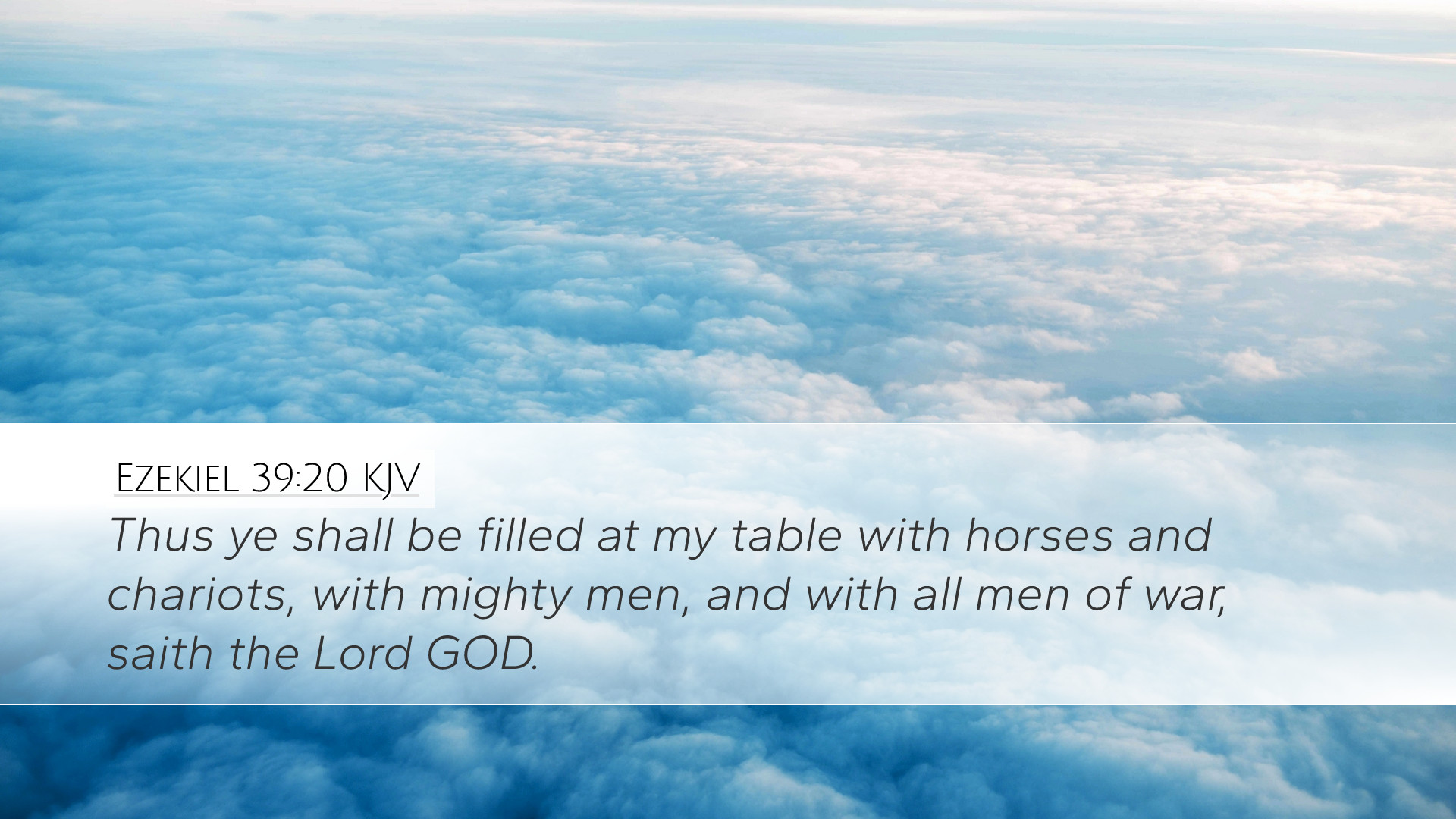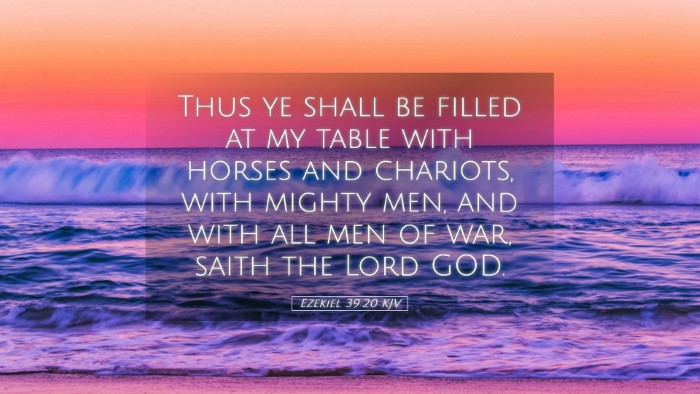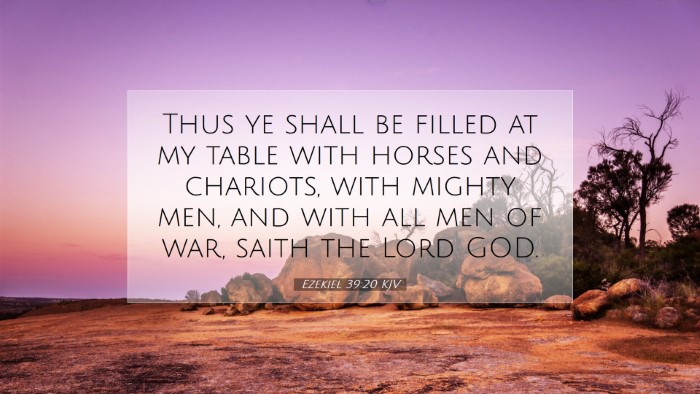Ezekiel 39:20 - Commentary and Insights
Ezekiel 39:20 reads: “Thus ye shall be filled at my table with horses and chariots, with mighty men and all men of war, saith the Lord God.” This verse occurs within a profound prophetic context wherein God assures His people of both judgment upon their enemies and restoration for Israel. This commentary seeks to expound upon the richness of this verse, drawing from the insights of several noted public domain theologians including Matthew Henry, Albert Barnes, and Adam Clarke.
Contextual Overview
Before diving into the specifics of verse 20, it is essential to understand the larger narrative of Ezekiel, particularly chapters 38 and 39, which address the Gog and Magog invasion and the resultant divine intervention. This apocalyptic imagery captures the tension of war, divine justice, and ultimate restoration.
Divine Judgment and Restoration
Matthew Henry notes that the preceding chapters describe a significant confrontation between God’s people and formidable foes. In this context, God not only judges the enemies of Israel but also abundantly restores His people. The imagery of being filled at the table signifies abundance, security, and divine provision. It illustrates the overwhelming victory that God grants to His people over their adversaries.
Symbolism of Horses and Chariots
Albert Barnes emphasizes the symbolic weight of “horses and chariots” in ancient warfare. They represented strength, military prowess, and human pride. By speaking of these elements in terms of the Lord’s provision, the verse reminds readers that ultimate strength comes not from human might but from God Himself. The mention of “mighty men” reinforces this theme, highlighting that God's victory reaffirms His sovereignty over the greatest warriors and nations.
A Table of Abundance
The metaphor of a banquet table is abundant in scriptural tradition. Adam Clarke elaborates on the concept of divine feasting throughout Scripture, illustrating how tables signify communion, provision, and joy. Here, God invites His people to partake in the spoils of victory, transforming the expected desolation of war into a scene of celebratory abundance. This act is a direct reversal of their former suffering and a testament to God’s restorative power.
Implications for the People of God
-
Hope for Restoration:
This verse serves as a profound reminder of hope for all believers, signifying that no matter the adversity faced, God will ultimately elevate His people from struggle to triumph.
-
Recognition of Divine Sovereignty:
In a world often filled with seemingly insurmountable challenges, this passage prompts reflection on where true power lies—reminding Christians to trust in God’s sovereignty over earthly kingdoms and their might.
-
Celebration of God’s Provision:
The feast metaphor communicates that God not only provides for physical needs but also fosters spiritual nourishment, calling attention to the spiritual banquet offered in His presence.
Reflection for Pastors and Theologians
For pastors and theologians, this verse encourages the shepherding of congregations through the acknowledgment of God’s immense capacity to restore and bless. In pastoral theology, there is a basis for inspiring congregants to view their struggles as part of a larger divine narrative that culminates in hope and restoration. It also serves as a call to action, underlying the importance of proclaiming God’s faithfulness in awakening faith even amidst trials.
Theology of Divine Warfare
This passage touches on the complex theology of divine warfare, where God's intervention challenges the conventional understanding of military conquest. Barnes suggests that such assertions of divine sovereignty should lead to a reconsideration of how modern believers perceive power and protection in their lives.
Literary and Theological Themes
-
The Importance of Community:
The shared experience of feasting illustrates the communal aspect of faith, encouraging unity among the people of God as they partake in His blessings together.
-
The Feast as Eschatological Hope:
This verse is often viewed through an eschatological lens, suggesting a future hope where God's people will experience ultimate deliverance and restoration in a divine banquet setting.
Conclusion
Ezekiel 39:20 encapsulates profound theological truths concerning God’s provision, sovereignty, and the promise of restoration. Drawing upon the commentary of scholars such as Henry, Barnes, and Clarke, we find a rich tapestry that invites deeper reflection on our understanding of God’s faithfulness in times of conflict. As pastors, scholars, and students reflect on this verse, it serves as a powerful reminder of God's final victory and the abundant life offered to His people.


